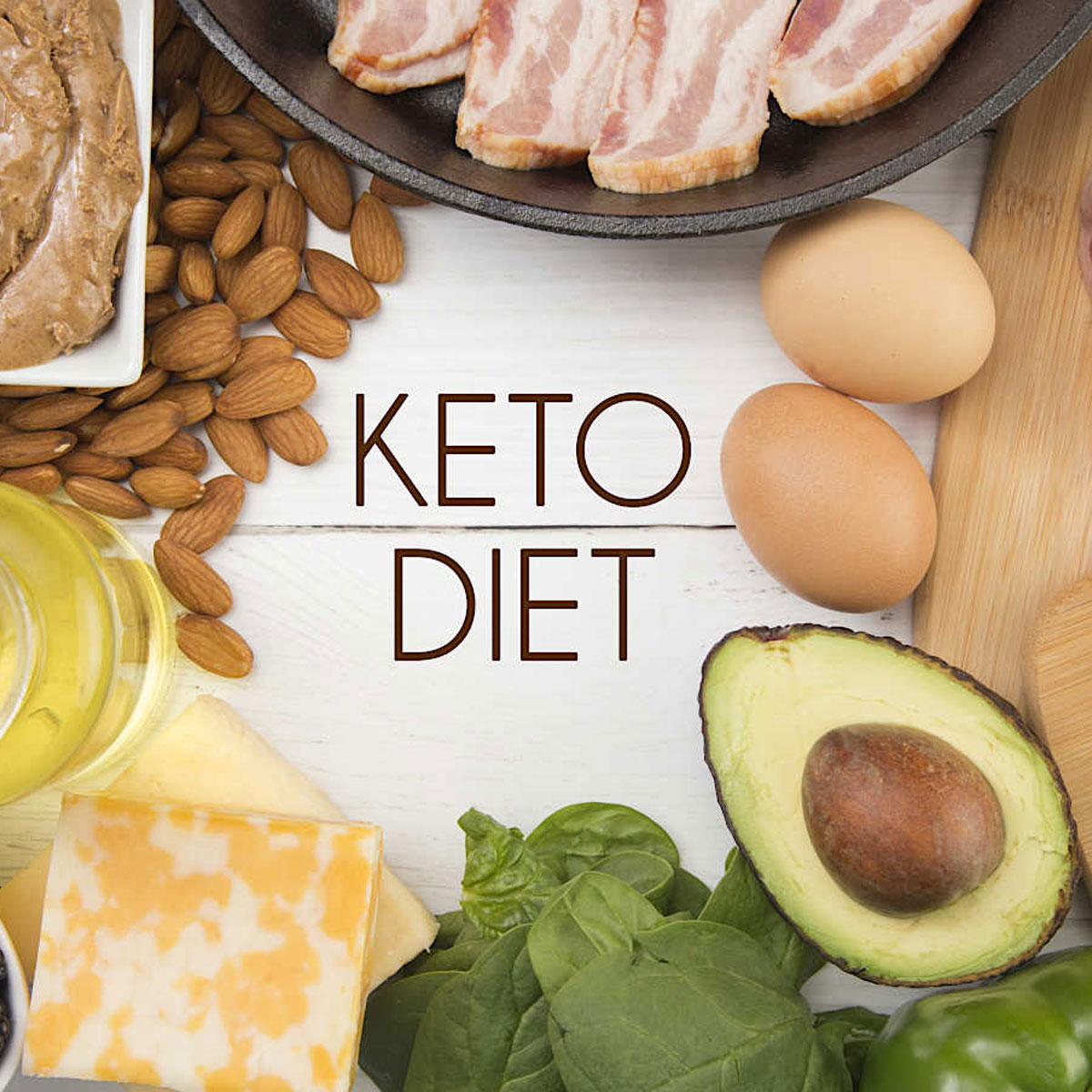In a modern world defined by increased stress and health challenges, making the right diet and lifestyle choices is more important than ever. From the weight we carry on our bodies to the energy that surges through us, the foods we eat have a huge effect on our health and quality of life. The ketogenic diet is an effort to stimulate the body's natural metabolic and healing responses by changing the way we burn fat and fuel our bodies on a daily basis.
What is a Ketogenic Diet?
A ketogenic diet is a low-carb, adequate-protein, high-fat diet. It may be capable of improving physiological processes by forcing the body to burn fat for energy. While this kind of diet is similar to other low-carb diets such as the Atkins and Paleo diets, a true ketogenic diet is focused on fat consumption rather than protein. On a ketogenic diet, your entire body switches its fuel supply, running mostly on fat and offering a range of benefits as a result.
A ketogenic diet involves drastically reducing your carbohydrate intake and replacing it with healthy fats. Instead of relying on sugar for energy, your body will become more efficient. While many unsaturated fats are not allowed on this diet, healthy saturated fats from oils, butter, and lard are encouraged in high quantities. In essence, a ketogenic diet replaces your current fuel source (sugar from carbs) to one based on healthy fats and measured protein intake.
What Does "Keto" Mean?
The ketogenic diet takes its name from "ketones" - small molecules produced by the liver and used to fuel the body as an alternative to glucose. Ketones, a type of acid, are sent into your bloodstream to be used by your brain, muscles, and other tissues. While your brain can't run on fat directly, it can run on ketones. When fats are transformed into ketones inside your liver, it becomes much easier to burn and utilise fat rather than store it.
Changing your relationship with fat offers a number of potential advantages, and this diet is possibly able to lower blood sugar and insulin levels. It could also improve metabolism by inducing a state known as "ketosis". This is a great way to burn fat and supply a steady source of energy to the body without the ups and downs experienced when carbs and other sugars are used for fuel.
Types of Keto Diets
Not all ketogenic diets are exactly the same, and the relationship between fats, carbs, and proteins helps to define diet options. The following four diets are common, with the first diet followed by the majority of people and the other three diets mostly followed by athletes and bodybuilders with a greater demand for protein and carbohydrates.
- Standard ketogenic diet (SKD) - This diet typically contains 75% fat, 20% protein, and 5% carbs.
- Cyclical ketogenic diet (CKD) - This diet involves dietary cycles, such as 5 ketogenic days followed by 2 high-carb days.
- Targeted ketogenic diet (TKD) - This diet allows you to add additional carb intake based around workouts.
- High-protein ketogenic diet - This diet typically contains 60% fat, 35% protein, and 5% carbs.
What to Eat on a Keto Diet
In order to induce ketosis, it's essential to follow a strict dietary plan that involves a high fat intake. Getting the liver to make ketones can be tricky, with carbs needing to be severely limited and protein needing to be regulated over a few days before a state of ketosis is met. People engaged with this diet must limit carbs and consume fat at each meal, with some foods needing to be avoided completely.
As listed above, a standard ketogenic diet includes roughly 75% of healthy fat content. This may come from natural sources like meat and eggs, cooking sources like butter or coconut oil, or added sources like dressings and sauces. Eggs are good, high-fat dairy products are great, and nuts can be enjoyed in moderation. Juice and soft drinks are bad due to their high sugar content, with water providing the best form of refreshment along with unsweetened coffee and tea due to their low carb content.
Unlike many other diets, it's important to limit your fresh fruit and vegetable content on a keto diet. Vegetables that grow above ground are best, and green leafy veg is generally much lower in carbs than things like parsnips and potatoes. Fruit should be avoided or severely minimised, as should pasta, rice, bread, beer, and sweet or processed snacks. Ideally, you should limit your carb intake to 20-50 grams per day, and be careful about balancing your fat and protein content based on the ratios listed above.
Health Benefits of a Ketogenic Diet
The ketogenic diet offers a range of potential health benefits, including weight loss, energy management, and possible advantages for a range of health conditions. While the ketogenic diet originated in the treatment of neurological diseases such as epilepsy, it has also shown promise for heart disease, Alzheimer's disease, and brain injuries among other conditions.
Weight loss and management
A number of studies have examined the benefits of high-fat diets for people with obesity. Contrary to popular belief, the consumption of fat content can be advantageous for weight loss and management in situations when healthy saturated fats are consumed and carbohydrate foods are severely limited. When ketosis is achieved, fat is burned more readily and the body is more able to lose fat and sustain a healthy weight.
Energy regulation
The ketogenic diet has been shown to fuel the body and brain, which may help to regulate energy production and associated feelings of focus and motivation. While the brain can't use fat directly, it can use the ketone bodies produced by the liver, which are derived from fatty acids in your diet. A ketogenic diet increases the number of mitochondria, or “energy factories” in brain cells, and can act as an energy source during cell metabolism.
Heart conditions
The ketogenic diet may help to improve many of the risk factors associated with heart disease and cardiovascular conditions. Low carbohydrate diets have been linked to reduced body fat, lower cholesterol levels, and improved blood pressure and blood sugar results in a number of clinical trials. Ketosis has been found to increase poly-unsaturated fatty acids and to reduce oxidant production and inflammation, which is the cause of many heart attacks and strokes.
Neurological conditions
The ketogenic diet was originally invented to control epilepsy in children, and has also shown promise in treating other neurological conditions. Many neurological diseases involve deficient energy production, which can be somewhat affected by high dietary fat consumption. During periods of metabolic stress, ketones can serve as an alternative energy source to maintain normal brain cell metabolism. Studies into the keto diet have found promising indicators for the treatment of Alzheimer's disease and Parkinson's disease, as well as recovery from brain injury.
Risks of the Ketogenic Diet
The ketogenic diet has shown promise as a weight loss tool, with high-fat diets also studied as a form of potential treatment for numerous cardiovascular and neurological conditions. Despite its promise, however, there are a number of risk factors associated with this diet. In many ways, a ketogenic diet mimics the process of starvation, by allowing the body to enter the metabolic ketosis state. While depriving the body of dietary carbohydrates can be beneficial in many situations, it is certainly not advisable for all people at all times.
Among other things, the keto diet can lead to nutrient deficiency, liver and kidney problems, constipation, mood swings, and an increase in "bad" cholesterol and associated heart disease. If you have diabetes, you can build up too many ketones in your blood, which can become life-threatening. If you're thinking about starting a keto diet, or engaging in any kind of restrictive diet regime, it's important to speak to a doctor or healthcare professional.
The ketogenic diet is getting a lot of attention at the moment, and for very good reason. While this diet is not without its risks, reducing the carbohydrate content of your diet while increasing healthy fat intake can be a great way to lose weight, increase energy levels, and benefit from your body's natural metabolic responses.


 Certified Organic
Certified Organic Vegan Friendly
Vegan Friendly  Vegetarian
Vegetarian Organic Ingredients
Organic Ingredients Dairy Free
Dairy Free Gluten Free
Gluten Free Keto Friendly
Keto Friendly































